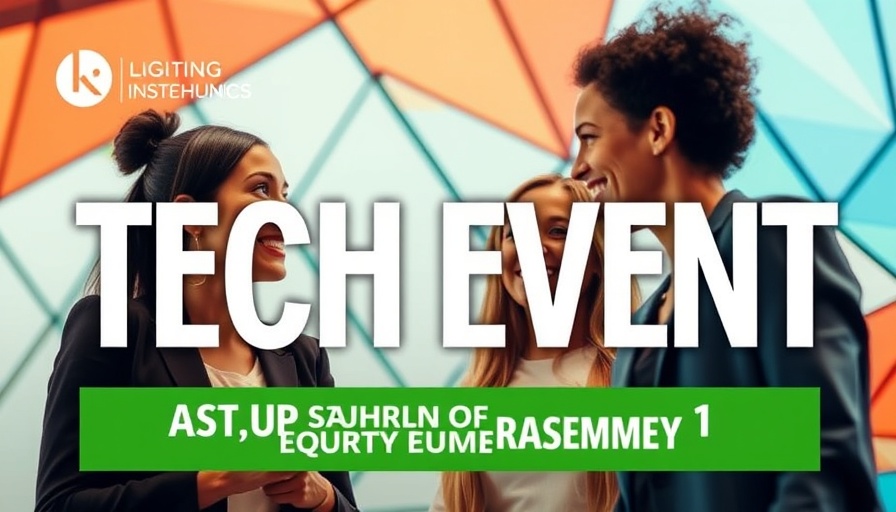
Benchmark's Interest in Greptile: A New Funding Frontier
Greptile, an innovative startup focused on AI-powered code reviews, is currently in talks to raise $30 million in a Series A financing round, with a projected valuation of $180 million. Benchmark, one of the leading venture capital firms, is reportedly interested in leading this funding effort. Founder Dasksh Gupta, a recent Georgia Tech graduate, is determined to carve out a niche in the highly competitive AI landscape.
The Growing Demand for Automated Code Review Solutions
The software industry is constantly evolving, necessitating rapid advancements in code maintenance and review processes. Greptile’s AI-driven approach tackles critical issues by identifying bugs and inefficiencies that human reviewers might overlook. As small business startups increasingly turn to automation for competitive advantages, Greptile is positioned to benefit from this trend, and its appeal to Benchmark signifies the firm's potential impact in the coding landscape.
What's at Stake for Investors?
Investors critically evaluate the competitive landscape before committing funds. Greptile faces stiff competition from other startups like Graphite and Coderabbit, which recently completed their own substantial funding rounds. Understanding these dynamics is pivotal for assessing the risks and rewards associated with investing in Greptile. Potential backers may also note the intense work culture at Greptile, which Gupta himself has publicly acknowledged. This could raise questions about sustainability and employee well-being, affecting its long-term profitability.
The Competitive Landscape
Greptile's emergence coincides with a boom in AI applications across various sectors. Rivals like Graphite, having raised $52 million this year, emphasize a burgeoning market for such technologies. As small businesses look for advanced solutions to streamline operations, the competitive pressures will only intensify. Gupta's admission that "no one cares about the third-best company" illustrates the necessity for Greptile to not just meet but exceed standards to attract meaningful investment.
Creating a Sustainable Work Culture
While aggressive work policies can yield short-term gains, they are often unsustainable in the long run. Gupta’s recent revelations about Greptile's demanding work hours have sparked discussions about employee well-being in startups. A culture that emphasizes long hours might deter potential talent, which is detrimental given the fierce competition in tech business startups. Sustainable practices not only attract talent but also enhance productivity and innovation, crucial for long-term growth.
What This Means for Aspiring Entrepreneurs
The situation with Greptile serves as a case study for aspiring entrepreneurs. Successful business startups often emerge from identifying gaps in the market but require deliberate strategies to maintain growth and investor confidence. Entrepreneurs can glean valuable insights from Greptile’s trajectory, notably the importance of balancing aggressive strategies with a healthy work culture. Understanding these dynamics might provide a framework for future ventures, particularly in tech.
Funding Insights: The Road Ahead
For startups looking to replicate Greptile's path, it’s crucial to outline a clear business startup plan. Funding options may range from venture capital to government grants for business startups, depending on a company's scale and sector. Having robust strategies in place can ease the burden of unexpected challenges, making it imperative for startups to have a comprehensive business startup checklist.
Final Thoughts: Striking the Right Balance
In conclusion, Greptile's funding journey encapsulates both the potential and challenges in the tech startup world. The combination of innovation, strategic partnerships, and a healthy work culture will define not just their success, but also resonate with future entrepreneurs. As the startup ecosystem continues to grow, leveraging insights from Greptile's experience will be invaluable. Businesses established today must prepare for tomorrow's challenges while emphasizing passion, resilience, and most importantly, sustainability.
As you consider embarking on your own startup adventures, remember that a balanced approach could be your key to success. Cultivate a culture that values hard work but doesn’t lose sight of employee well-being. Stay informed about funding opportunities and be open to networking within the startup community. The landscape is ever-changing, but with the right mindset, the possibilities are limitless.
 Add Row
Add Row  Add
Add 



Write A Comment